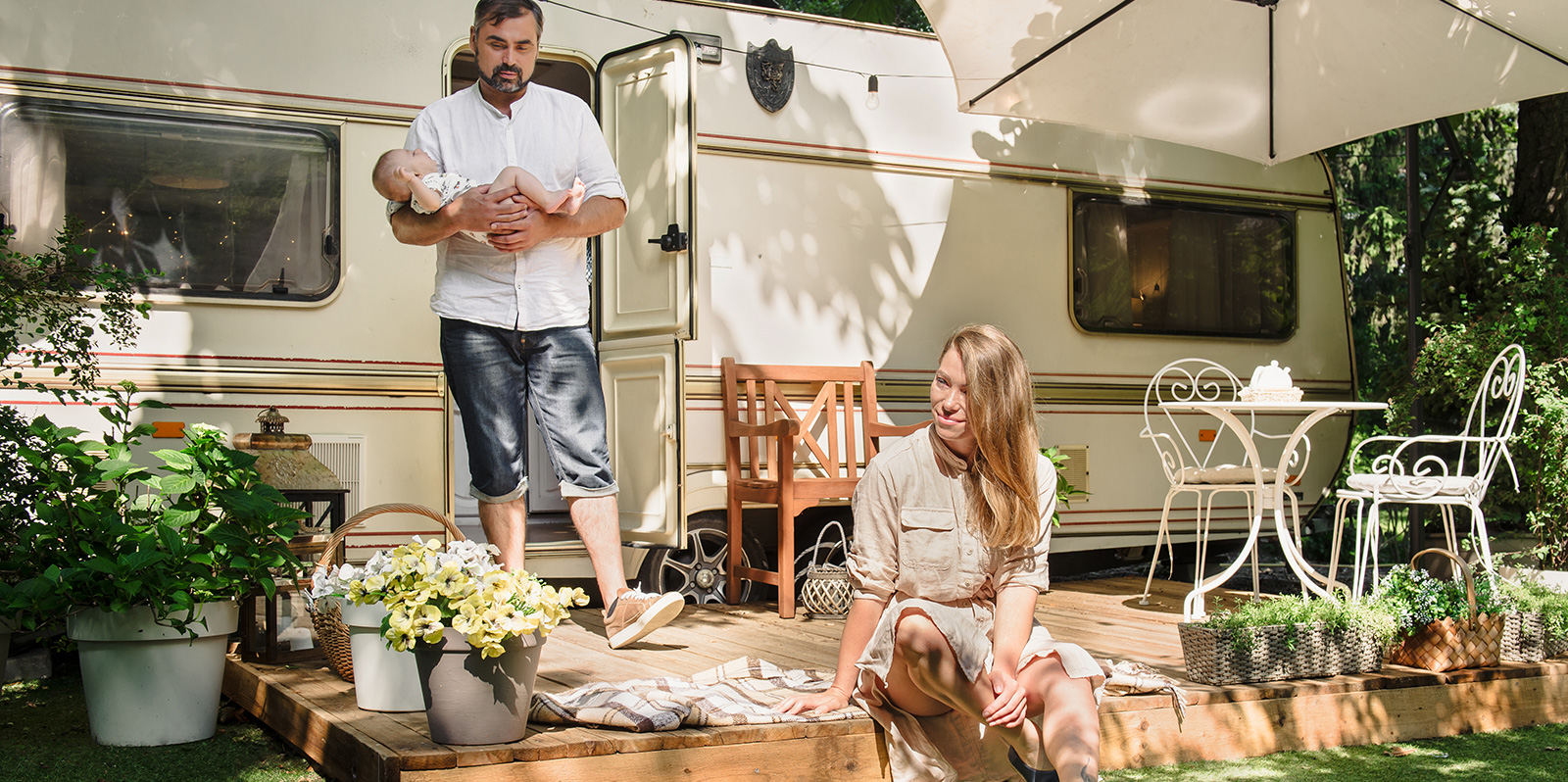Is it time to make a big change? Are you thinking about living full time in your RV? If this persistent idea is taking shape, it might be time to examine the reality. Does this lifestyle have cheaper or just different expenses? Where do you want to go? What are the logistics of daily life on the road? What about parking long-term for a break, or just to thoroughly explore a new place? How will kids and pets make the change? Should you have an exit plan? These guidelines are a starting point for full-time RVing.
Budgeting your Resources
Depending on whether you plan to park frequently or travel constantly from place to place—or something in between—basic expenses will change very little, except for fuel. Supplies, parking fees, RV maintenance and repairs, insurance—both automotive and health—and, ideally, a good RV association will apply to every situation. Talking to other full-time RVers will give you practical information that, of course, will vary by their experiences and resources. In addition, or to know what to ask, pull up some of the myriad websites such as RV North America.
In the end, your personal preferences and lifestyle will, as always, determine the details of your budget, but having a budget before you leave will reduce the chance of unpleasant surprises on the road.
Additional Resources
To Domicile or Not to Domicile
If you’ve ever wanted to change the state you live in, now’s the time to consider it. Domiciling—establishing a location for your permanent address—provides benefits and changes to tax and insurance rates, voting, and schooling, but also your vehicle registration, and driver’s license. States without state income taxes—Texas, South Dakota, Florida, and Nevada—are good choices, but be aware that some governmental fees, such as license plates, may be slightly higher. Oregon is popular for its lack of sales tax. Domiciling solves numerous other issues, and government websites for each state can provide a good picture of where you might choose.
The Family
More and more families are taking to the road, partly to provide a different type of education for the kids, for new experiences, or to fulfill nomadic inclinations. Learning about the world, making new friends, seeing amazing sights, becoming closer as a family all figure into the decision. RV associations will help families in significant ways, not just with discounted rates for road assistance, insurance, or campgrounds. But not only families hit the road: retired “snowbirds,” singles, couples, and those with pets discover the freedom and fun of RV living.
The Daily Routine
All the comforts and necessities of home are available on the road these days. With more than 11 million RV owners, people on the move have a large number of resources to maintain the “little” details of life, such as receiving mail, banking, watching TV, and connecting to the Internet. Mail forwarding services, virtual mail services (scans and emails what you receive in snail mail), and even ways of receiving packages are described at Road Less Traveled.
And not everyone on the road is retired. With recent remote work situations, full-time RVing is more feasible than ever. Stable Internet connections will take priority for those working. RV parks usually have Wi-Fi similar to that used in cafés. More secure connections or connecting from more isolated areas are explained in the Mobile Internet Resource Center. Another income option is work camping, and yet another is to make use of businesses that rent short-term office spaces in cities.
RV clubs and associations are a wealth of information, can provide communities, friends, activities, and discounts.
Riverbound Custom Storage & RV Park in Lake Havasu, AZ, makes a great home base and provides all the comforts and necessities of home. Spaces for the kids, a park for the dog, swimming pool, laundry, café, mail delivery, and long-term storage are all here. Recreational boating and more places to see than you can count are right there. Have a look at Riverbound before you choose your domicile location. You can have it all.


